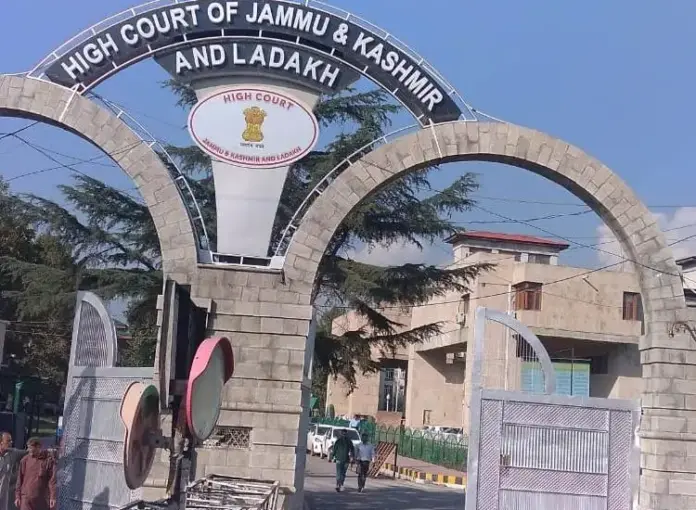Srinagar: The J&K & Ladakh High Court has held that Section 12 of the Minimum Wages Act casts a legally enforceable duty upon the employer to pay every employee wages at a rate not less than the minimum wages fixed.
The judgment was passed in a writ petition filed by scores of need-based casual labourers engaged by the government in different departments since 2014.
The petitioners pleaded that they were being paid rupees 100 per day, which is against the mandate of the Minimum Wages Act
Justice Sanja Dhar, while passing his judgment on the petition, recorded that since the minimum wages have been fixed by the Government of J&K in terms of Government Orders dated 25.01.2018 and 23.04.2022, as such the respondents cannot deny the benefit of the same to the petitioners.
“Doing so would be a violation of Section 12 of the Minimum Wages Act, which is impermissible in law”, Justice Dhar said.
He directed the respondent authorities “to pay wages to the petitioners at the rate of Rs 225/- per day from 1st January, 2018 up to 31st March, 2022 and at the rate of Rs 300/- per day from 5 01.04.20222 onwards for the days they have actually worked with the respondents. The petitioners shall also be entitled to arrears of the wages for the aforesaid period”.
The respondents have been directed to calculate and disburse the wages, including the arrears, at the aforesaid rates and for the aforesaid period to the petitioners, within a period of three months. Failing compliance, the arrears of wages shall carry interest @6% per annum till their realisation.
The petitioners sought a direction upon the respondents to release the wages in their favour @ Rs 300/- per day from 01.04.2022 in light of Government Order No.121-F of 2022 dated 23.04.2022.
A further direction to release the wages in favour of the petitioners @ Rs 225/- per day w.e.f 01.01.2018 in terms of Government Order No.27-F of 2018 dated 25.01.2018 and @ Rs 150/- per day with effect from the year 2014 along with all consequential benefits, has also been sought.
The petitioners further submitted that the Government has enhanced wages to daily wagers from Rs 225/- to Rs 300/- per day w.e.f 01.04.2022 in terms of Government Order No.121-F of 2022 dated the Wages Act. 23.04.2022, but the petitioners are still being paid wages @ Rs.100/- per day, which is against the mandate of Minimum
The government authorities contested the writ petition, saying that the petitioners are neither working as daily wagers nor are they in receipt of Rs 225/- per day as wages. It has been further submitted that Government Order No.121-F of 2022, dated 23.04.2022, is applicable only to the duly engaged daily wagers, including casual labourers.
They said that the petitioners are working on a need basis in the respondent departments and not as daily wagers/casual labourers; as such, the Government Order dated 23.04.2022 is not applicable to them.
The court, after examining the records, found that the petitioners have been engaged as casual labourers on a need basis at the minimum wages permissible under the rules.
“The engagement orders of petitioners are identical in nature, and the said orders specifically provide that the petitioners have been engaged on a need basis on the minimum wages applicable under the rules. Thus, contention of the respondents that the petitioners were engaged on consolidated wages is not borne out from the record,” noted the court.
It said there is no justification for the respondents to deny the wages to the petitioners at the rates and for the period mentioned in the aforesaid two Government orders.













